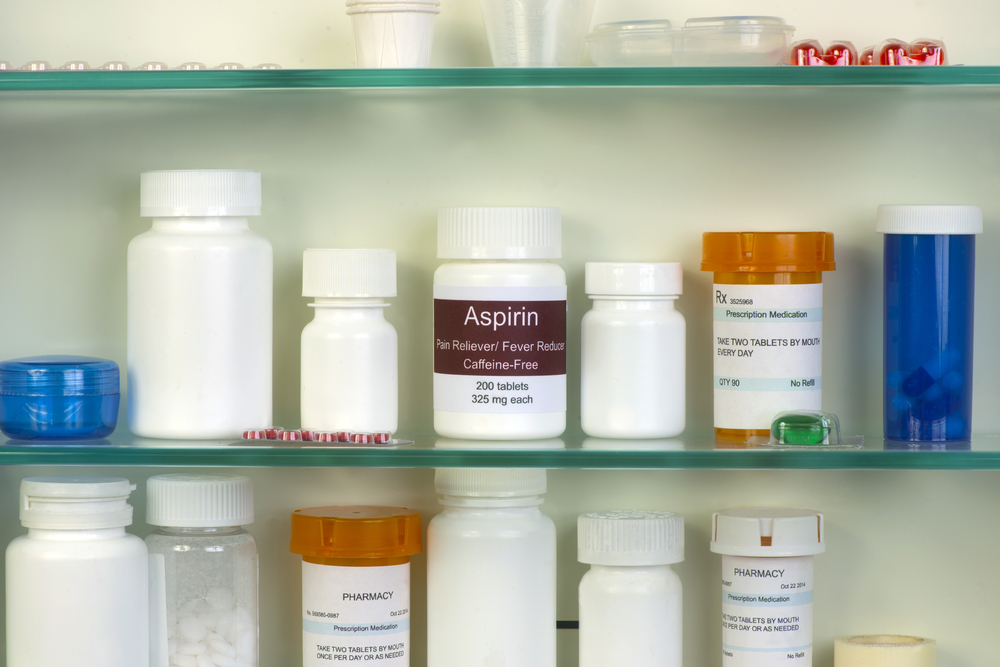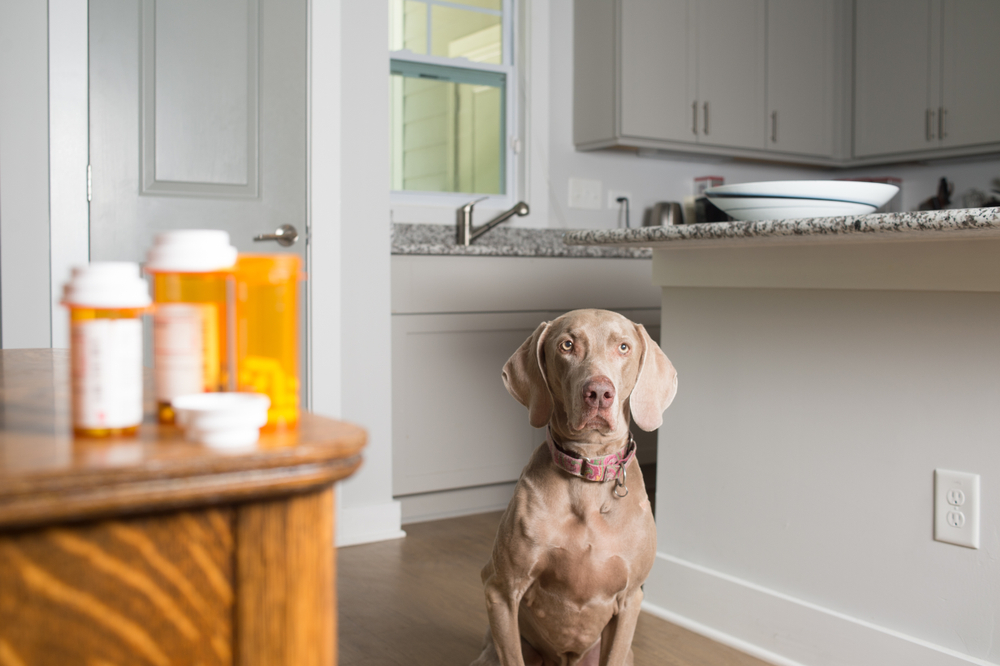Many human medications, while safe for people when used as directed, can be extremely harmful to your pet if they get their paws on the bottle. While you should never give your pet any human medication unless your Southern Kern Veterinary Clinic veterinarian recommends you do so, you still should understand the risks that may result from your pet ingesting common human medications. By recognizing the human medication hazards in your home, you can protect your four-legged friend from being poisoned.
Human medications that are dangerous to pets
Cats and dogs metabolize drugs differently than people do—and differently from each other—so what is safe for people to take can potentially prove fatal for your furry pal. Prevent your pet from ingesting any of these common toxic human medications:
- Nonsteroidal anti-inflammatory drugs (NSAIDs) — Ibuprofen, aspirin, and naproxen are common household medications that can be toxic to pets, causing gastrointestinal (GI) ulcers, kidney failure, and liver damage.
- Acetaminophen — This pain reliever, while effective for people, can be lethal to pets, leading to liver failure, difficulty breathing, and death. Cats are particularly susceptible to acetaminophen toxicity. A tiny amount of Tylenol can prove fatal for your cat.
- Antidepressants — Medications such as selective serotonin reuptake inhibitors (SSRIs) and serotonin-norepinephrine reuptake inhibitors (SNRIs) can cause symptoms such as vomiting, diarrhea, seizures, and heart rate changes in pets.
- Attention deficit hyperactivity disorder (ADHD) medications — Drugs, such as Adderall (mixed amphetamine salts) and Ritalin (methylphenidate ), commonly used to treat ADHD, can be extremely dangerous for pets, causing elevated heart rates, tremors, seizures, and death.
- Tricyclic antidepressants — Medications such as amitriptyline, clomipramine, and imipramine can cause sedation, disorientation, agitation, rapid heart rate, low blood pressure, tremors, seizures, and coma or death in pets.
- Benzodiazepines — Drugs such as Xanax (alprazolam), Valium (diazepam), and Ativan (lorazepam) may be used in veterinary medicine, but at different doses than for people. Pets who suffer from benzodiazepine toxicity can experience sedation, weakness, and ataxia, and may struggle to breathe. If a pet ingests a large quantity of benzodiazepines, they can become comatose or die.
- Opioids — Often prescribed for pain, opioids such as codeine, morphine, oxycodone, and hydrocodone can be dangerous for pets. These medications can cause respiratory depression, sedation, lethargy, vomiting, constipation, and in severe cases, coma or death, particularly in small pets, or if your furry pal ingests one of these drugs in a large quantity.
- Muscle relaxants — Muscle relaxants such as Flexeril (cyclobenzaprine), Robaxin (methocarbamol), and Kemstro (baclofen) can cause sedation, weakness, lethargy, hypotension, and central nervous system or respiratory depression in pets.
- Sleep aids — Ambien (zolpidem) and Lunesta (eszopiclone) can cause sedation, lethargy, ataxia, confusion, agitation, and respiratory depression in pets, especially when ingested in a large quantity.
- Cardiac medications — Heart medications such as propranolol, diltiazem, and lisinopril can lead to low blood pressure, slow heart rate, cardiac arrhythmias, weakness, collapse, and in severe cases, cardiovascular collapse or death in pets.
- Diabetes medications — Insulin, glipizide, and metformin can cause low blood sugar, weakness, tremors, seizures, disorientation, and collapse in pets.
Medication toxicity signs in pets
If your pet finds a dropped pill on the floor or ingests the contents of a prescription bottle while you’re away, you may not realize they’ve been poisoned until signs develop. Consider medication ingestion to be a potential cause, and seek immediate veterinary care if your pet exhibits any of the following toxicity signs:
- Vomiting and diarrhea
- Excessive drooling
- Lethargy, weakness, or sedation
- Difficulty breathing
- Tremors or seizures
- Changes in heart rate or rhythm
- Loss of coordination
How pets can access human medications
Pets are curious, tenacious, and, sometmes, downright clever. Your furry pal can access your medications in many ways, including:
- Accidental ingestion — Pets may ingest medications left within their reach or dropped on the floor.
- Misguided administration — Some well-meaning owners may administer human medications to their pets without realizing the potential harm.
- Dumpster diving — Curious pets may rummage through trash cans or bags where medications have been disposed of improperly.
- Counter surfing — Cats and dogs may jump onto counters or tables where medications may be kept.
Preventing pets’ toxic exposure to human medications

Human medications pose serious health risks to your pet. However, you can keep your four-legged friend safe by following these tips:
- Store medications securely — Keep all medications, supplements, and vitamins in cabinets or containers that are inaccessible to pets, ensuring they latch properly or are outfitted with childproof locks.
- Exercise caution when administering medications — Never give your pet any medication without first consulting our team.
- Dispose of medications properly — Dispose of expired or unused medications promptly and securely, preferably by using drug take-back programs or following specific disposal guidelines.
- Educate family members — Ensure that everyone in the household, including children, understands the importance of keeping medications out of your pet’s reach.
- Remain vigilant — Keep an eye on your pet’s behavior, and seek immediate veterinary care if you suspect they’ve ingested something harmful.
Although medications are ubiquitous in most homes, by taking the proper precautions, you can help protect your pet from accidental medication ingestion. Keep in mind that the list presented here is not exhaustive, and many other human medications can be harmful to pets. When in doubt, assume a human medication or supplement is dangerous for your pet, and seek veterinary care immediately if you suspect your furry pal has ingested a harmful substance. Contact our Southern Kern Veterinary Clinic team or an animal poison control center for help.







Leave A Comment